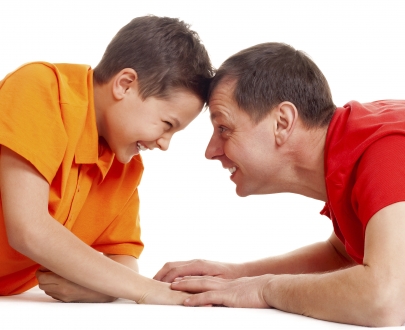 Being a parent is rewarding.
Being a parent is rewarding.
Being a parent is hard.
The experience is, in fact, filled with dichotomies. Time goes so slow...time flies. You can’t wait until your child walks... your anxiety rises as they walk, no, run independently. Pride as they get their first job... angst when they move out.
The relationships that children have with caring adults are strong predictors[1] of future emotional well-being. Researchers[2] in the area of relationship dynamics and developmental psychology examine the effects of parents on children and children on parents and describe five elements that make the Parent-Child relationship unique, special and complex.
1. The relationship isn’t voluntary!
Unlike many other situations in which a person can enter or leave a relationship without a great amount of conflict and energy, a parent-child connection is what researchers call a “closed field.”[3] This means that the involuntary relationship is expected to be permanent and develops a history and routine.
2. There are oodles of interactions!
Parents and children interact more with each other than in any other relationship. Typically there are predictable patterns of behaviour and routines. Because of these patterns and resulting expectations, parent-child interactions are usually driven by and result in consequences.
3. Expectation is the great influencer.
Strong expectations often exist in parent-child interactions and both parents and children make constant adjustments to their usual behavior around these expectations.
4. A “forever” future exists.
Parent-child relationships carry expectations of a shared future. Both parent and child have long term goals for the relationship that influences most interactions. The interpretation of this “forever” future is both strengthened and challenged along the journey of growing up.
5. Growing up changes everyone.
Parents and children grow older together, and experience the changes in themselves, and their relationships together. It is not only about the incredible changes in children over time, but parents are aging and transitioning in critical ways too. The changes consistently evolve the relationship over time.
Mindful parenting[4] is an approach that embraces the ever-changing dynamics of parent-child interactions. By developing skills[5] such as emotional awareness, self-regulation, compassion and intentionality, parents and their children can better navigate the complexity of relationship transitions over time.
In a study of grade 4 students, perceived support at school, home and in the neighbourhood (in that order) emerged as strong predictors of emotional well-being.
Studies in this area explore the fact that family relationships are "bi-directional."
Closed-field relationships have the following characteristics:
- long histories and many interactions
- routines and habits in the way people communicate
- the potential of conflict affecting power and autonomy
"Outside of the family, youth participate in open-field or voluntary interactions, forming and dissolving relationships without the biological or legal constraints that apply to familial dyads." (Collins et. al., 1997)
"Mindful Parenting" can be described as a framework that includes:
- listening with full attention when interacting with children
- fostering emotional awareness and self-regulation (for parent and child)
- bringing compassion and non-judgemental acceptance to parenting situations
Foster skills in family members such as:
- Breath Awareness
- Thought Awareness
- Emotion Awareness
- Awareness of the Environment